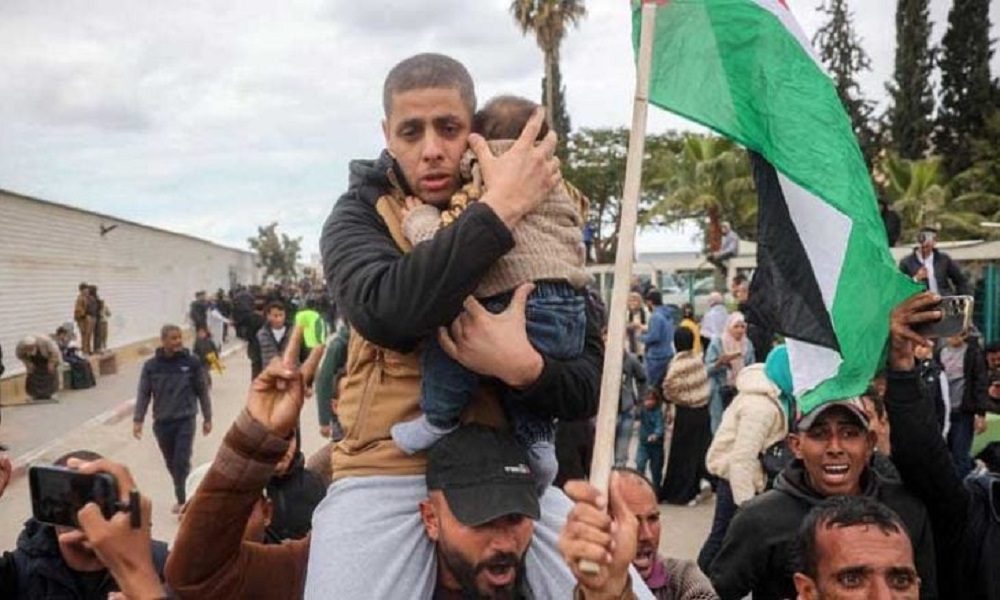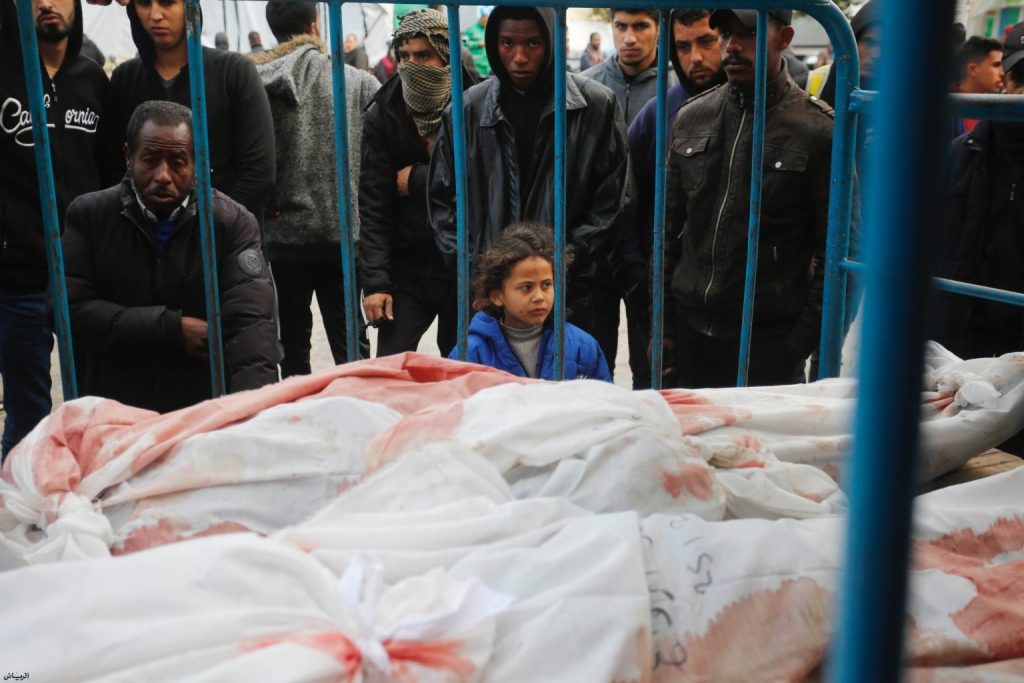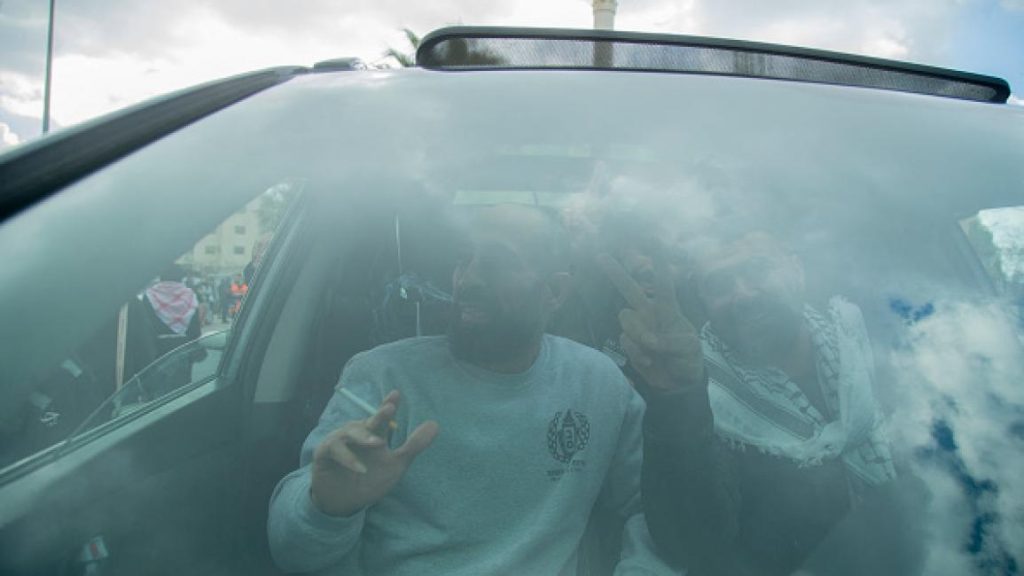Freed but Broken: Palestinian Prisoners Reveal Horrors of Israeli Detention
The release of Palestinian prisoners under the ceasefire deal was overshadowed by shocking testimonies of brutal mistreatment, torture, and medical neglect inside Israeli prisons.

Watan-A large number of Palestinian families celebrating the release of their imprisoned loved ones on Saturday as part of the fifth batch of the first ceasefire deal were met with heartbreak, as more than seven of the freed prisoners were immediately transferred to hospitals.
Among them was senior Hamas leader Jamal Al-Tawil, who was carried on shoulders while using an oxygen tank after suffering severe beatings before his release. The testimonies of the released prisoners revealed the horrors they endured, with one former detainee recounting that Israeli authorities used dogs to sexually assault prisoners, sometimes leading to rape.
Freed journalist and former prisoner Bushra Al-Tawil stated that her family had to rush from the reception area near the Mahmoud Darwish Museum to the hospital, where her father was taken due to his deteriorating health.

Prisoners Endure Brutal Conditions in Israeli Custody
One of the released prisoners, Mohammed Khamis Ibrash from Al-Amari refugee camp in Ramallah, had been detained since 2003 and survived an assassination attempt that resulted in the amputation of his left leg, complete blindness in his right eye, corneal damage in his left eye, and shrapnel injuries throughout his body. He was sentenced to three life terms plus 30 years.
Another freed prisoner, Mohammed Abu Sabra from Nablus, remained hospitalized in Ramallah due to his severe medical condition. He suffers from scabies, high blood pressure, diabetes, and severe pain in his head and joints. Medical sources reported that he has a fractured jaw, an inflamed hip implant, blurred vision, ear pain, iron and calcium deficiencies, and low blood levels. Abu Sabra was freed as part of the fifth batch of the first phase of the “Al-Ahrar Flood” prisoner exchange deal after three years of imprisonment.
The Palestinian Prisoners’ Information Office pointed out the stark contrast in international reactions to prisoner treatment. While global outrage erupted over three Israeli captives losing a few kilograms, the world remained silent when Palestinian detainees, including martyr Nasser Abu Hamid and many others, suffered medical neglect and torture in Israeli prisons.

Emotional Reception and Continued Warnings on Israeli Violations
On Saturday, 183 prisoners were released in the fifth batch of the first phase of the deal. A large crowd gathered in Ramallah to welcome 42 freed detainees, many of whom appeared in poor health and recounted mistreatment. The Red Crescent transferred seven of them to hospitals for medical care.
The Palestinian Prisoners’ Information Office emphasized in a statement that Israel’s continued crimes against Palestinian prisoners are enabled by international double standards. The statement highlighted how hundreds of freed prisoners emerged from Israeli prisons physically and psychologically shattered due to years of torture and mistreatment, yet global institutions remained silent.
Former detainee Adham Mansour, 45, from Jabalia in northern Gaza, described the brutal conditions he endured after his arrest on December 22, 2023. He revealed that Israeli forces used dogs to sexually assault prisoners, stating: “We were beaten, humiliated, and placed in horrific conditions. Some prisoners were raped by dogs.” Mansour, who lost 25 kilograms in detention, likened Israeli prisons to the infamous Guantanamo Bay due to their extreme torture and starvation policies.
Another freed prisoner, Maali Al-Agha, 47, from Khan Younis, compared Israeli prisons to “Guantanamo” after suffering relentless abuse following his arrest in Israel’s ongoing war on Gaza. He recounted how Israeli special forces arrested him and his relatives by sea and subjected them to brutal interrogations and medical neglect. “Israeli prisons are extremely harsh. Prisoners suffer from extreme hunger and food shortages,” Al-Agha said.

Netanyahu Vows Retaliation
Following the release of the latest batch of Israeli prisoners, Prime Minister Benjamin Netanyahu declared that the frail condition of the three freed Israeli captives was “shocking and unacceptable.” Israeli President Isaac Herzog echoed his sentiment, calling the conditions of the released captives “horrific and a crime against humanity.”
The Israeli Hostages’ Families Forum compared images of the three freed captives to Holocaust survivors, sparking controversy. Even Israeli Finance Minister Bezalel Smotrich criticized the comparison, calling it a “grave mistake and an insult to the Holocaust.”
As Israel continues to wage war on Gaza and negotiations for a second phase of the prisoner exchange remain uncertain, the testimonies of Palestinian detainees highlight the deep suffering endured under Israeli imprisonment—stories largely ignored by the international community.






